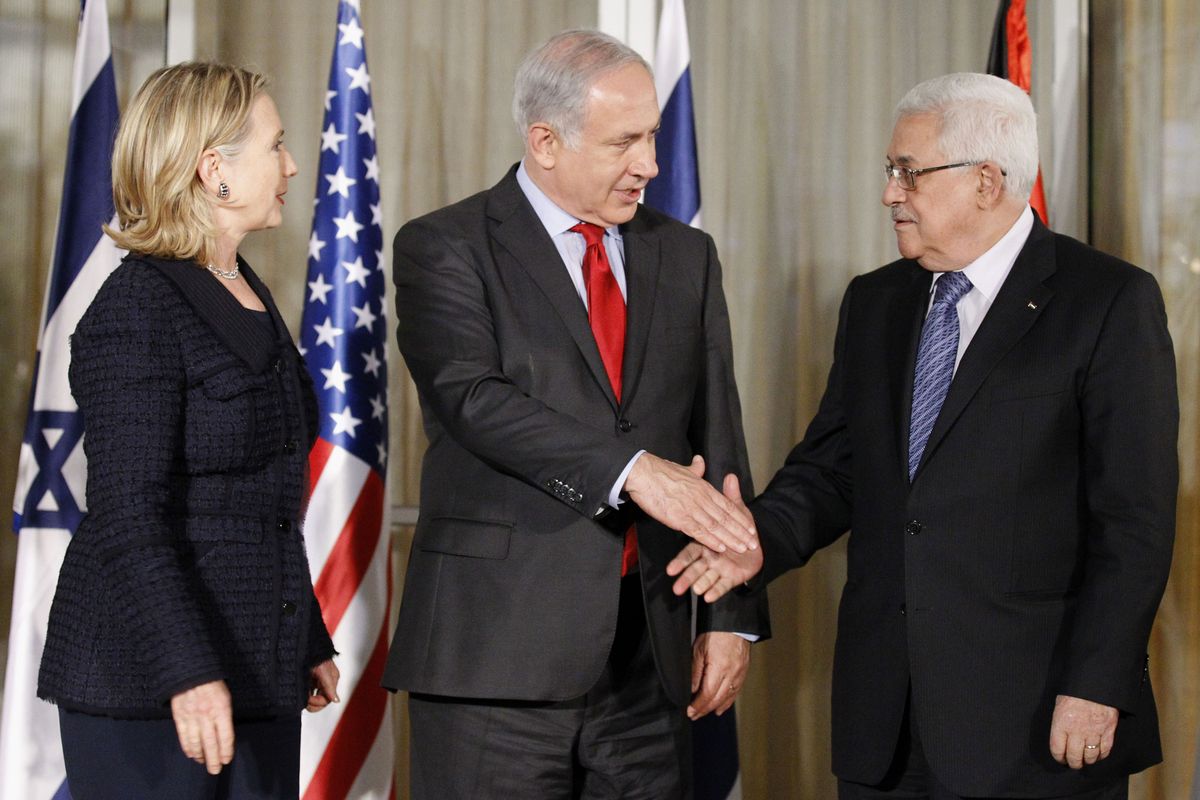No deal in Mideast talks
Clinton travels to Jordan today to talk with King Abdullah

JERUSALEM – A mortar attack by Palestinian militants and airstrikes by Israel formed the grim backdrop as Mideast leaders ended their latest round of peace talks Wednesday, still divided on major issues. There was no word on when they would meet again.
The inconclusive U.S.-brokered talks between Israeli Prime Minister Benjamin Netanyahu and Palestinian President Mahmoud Abbas left in doubt the prospects for their new effort to end generations of hostilities in the region and create a sovereign Palestine alongside a secure Israel.
George Mitchell, the U.S. envoy for Mideast peace efforts, emerged from an evening session to say the talks had been encouraging but had fallen short of agreement.
“A serious and substantive discussion is well under way,” Mitchell told a news conference.
Abbas and Netanyahu met with U.S. Secretary of State Hillary Rodham Clinton for about two hours at the Israeli leader’s official residence here and agreed to continue the search for a peace deal, he said.
But the leaders face a looming crisis with the expiration this month of Israel’s partial moratorium on West Bank settlement construction, and it was not clear when they would reconvene. Lower-level officials will meet next week to work out a plan for the next meeting between Netanyahu and Abbas, Mitchell said.
Clinton planned to meet with Abbas on Thursday at his West Bank offices in Ramallah, and then travel to Amman for a working lunch with Jordan’s King Abdullah II, who has been a forceful supporter of the peace talks.
Militants opposed to any deal with Israel have threatened to derail the negotiations, and the Israeli military said eight mortars and one rocket hit Israel Wednesday – the highest daily total since March 2009. There were no injuries. Israeli warplanes responded by bombing a smuggling tunnel along the Gaza-Egypt border, the military said. Hamas officials said one person was killed and four wounded.
Mitchell said no one should expect an easy road ahead, but he contended important progress was being made.
“The two leaders are not leaving the tough issues to the end of their discussions; they are tackling upfront – and did so this evening – the issues that are at the center of the Israeli-Palestinian conflict,” he said. “We take this as a strong indicator of their belief that peace is possible and of their desire to conclude an agreement.”
The aim is to reach a final peace deal within one year, with the first step being what Mitchell calls a “framework” agreement that would lay out the main compromises each side would need to make to complete a full peace treaty.
Jordan and Egypt, which already have peace treaties with Israel, are co-sponsors of this week’s talks. Egyptian President Hosni Mubarak hosted Tuesday’s negotiations.
Mitchell said he will visit Syria today and Lebanon on Friday in search of a broader Mideast peace, although there is no apparent movement toward direct negotiations between Israel and either country.